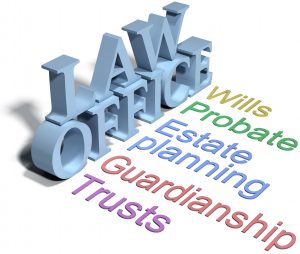 The appointment of an Executor or Administrator of an estate begins the process of the settlement of an estate. An Executor is appointed when a decedent leaves a Last Will and Testament which has been admitted to Probate in the Surrogate’s Court. There are Surrogate’s Court’s throughout New York State including the New York County (Manhattan) Surrogate’s Court, the Bronx County Surrogate’s Court, the Kings County (Brooklyn) Surrogate’s Court and the Queens County Surrogate’s Court. An Administrator is appointed when a Decedent does not have a Will and dies intestate. In these cases a Decedent’s distributees (heirs at law) inherit the estate. The New York Probate Lawyer Blog contains many articles regarding estates and fiduciaries.
The appointment of an Executor or Administrator of an estate begins the process of the settlement of an estate. An Executor is appointed when a decedent leaves a Last Will and Testament which has been admitted to Probate in the Surrogate’s Court. There are Surrogate’s Court’s throughout New York State including the New York County (Manhattan) Surrogate’s Court, the Bronx County Surrogate’s Court, the Kings County (Brooklyn) Surrogate’s Court and the Queens County Surrogate’s Court. An Administrator is appointed when a Decedent does not have a Will and dies intestate. In these cases a Decedent’s distributees (heirs at law) inherit the estate. The New York Probate Lawyer Blog contains many articles regarding estates and fiduciaries.
The Court appointed Administrator or Executor and also Trustees have many obligations and powers. The obligations include duties of fairness to beneficiaries and to not take advantage of the appointment to benefit themself. A fiduciary cannot comingle estate or trust funds with his personal funds and cannot use fiduciary assets for personal purposes or personal expenses. A fiduciary has many powers which are given by the Estates, Powers and Trusts Law Section 11-1.1 entitled “Fiduciaries’ powers”.
As a trusts and estates lawyer for over 45 years, I have encountered many situations where an issue arises concerning fiduciary conduct and whether the appointment of a fiduciary should be revoked by a Court. These cases can be very complicated. The Court requires that specific acts and facts of wrongdoing be shown for removal. It is not enough for a beneficiary just to say that he does not like or get along with the executor or trustee.
 New York Probate Lawyer Blog
New York Probate Lawyer Blog









